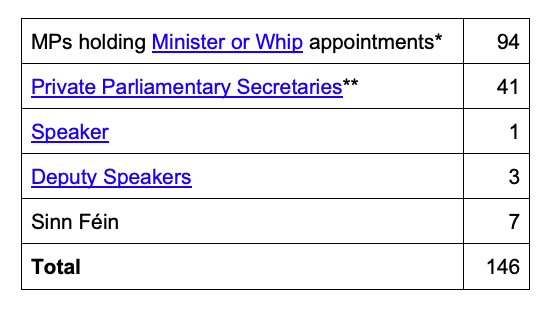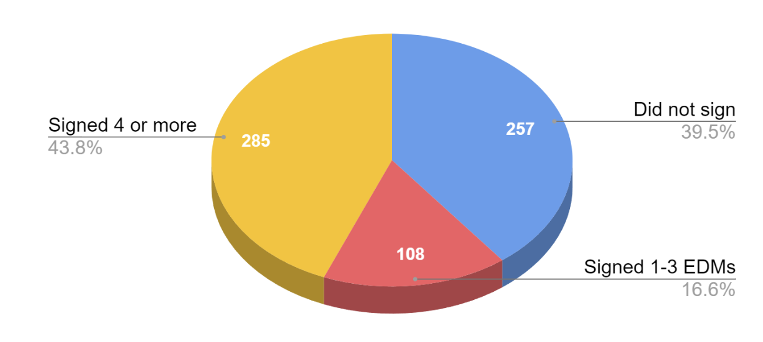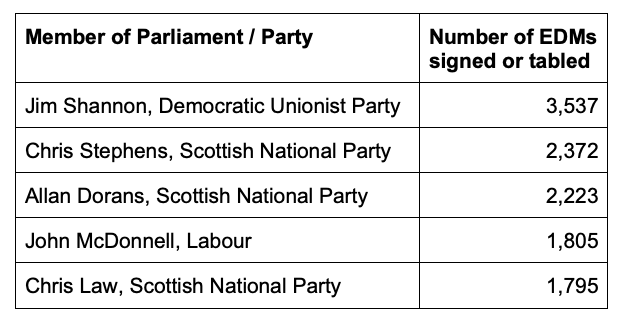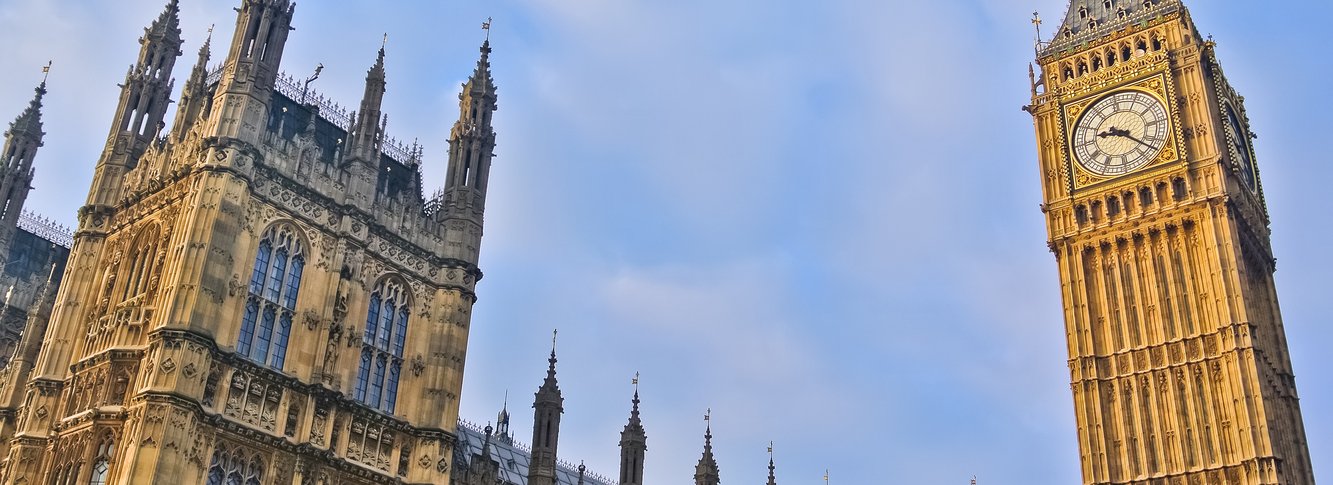| 7 mins read
Early Day Motions (EDMs) have been the subject of much criticism. Disparagingly described as parliamentary graffiti, an unofficial boycott has emerged among dissenting MPs, with the effect of denying whole communities of their advocacy potential. This does not have to be the case. Capping the use of EDMs and introducing procedural innovations could shift popular MP opinion and, in doing so, return EDMs to the public’s orbit of influence.
The Quiet Protest
EDMs are a form of thought experiment. They provide a platform for MPs to “express an opinion, publicise a cause or support a position,” as the guide to procedure explains. Barring certain exceptions, the majority of the UK’s 650 MPs can sign or table motions, with current trends showing a norm of between 1,000 and 2,000 EDMs filed each parliamentary session. However, many MPs are refusing to participate. Statements on constituency websites provide some insight as to why.
Tim Loughton, MP for East Worthing and Shoreham, makes his position clear, calling EDMs “past their sell-by date” and an “irrelevance and a waste of parliamentary resources.” Robert Buckland, MP for South Swindon, echoes this charge, adding that they “have little legislative effect.” Robert Courts, MP for Witney and West Oxfordshire, describes EDMs as “politically impotent” and counts himself as part of “a growing number of MPs on a cross-party basis [taking] the principled decision not to sign.” These arguments tell of seemingly widespread agreement, but just how many MPs have joined this quiet protest?
Using data from the UK Parliament website, an analysis of signature behaviour helps to answer this question. Since 17 December 2019 (the opening of Parliament) through to 30 June 2023, there have been 4,383 EDMs, inclusive of those subsequently withdrawn. The pool of signatories fluctuates, but, as a snapshot, MPs with grounds for exemption or abstention total 146, or 22.5 percent of the House (Fig. 1). The remaining 504 MPs theoretically have free reign.

Figure 1. Number of MPs exempt from EDMs or abstaining from political activities. *Data correct as of 28 June 2023 **Data published in November 2022
A simple signature count reveals that 257 MPs did not table or sign a single motion (Fig. 2). A further 108 only signed between one and three EDMs in just over 42 months, earning them the categorisation as de-facto dissenters. Together, these figures amount to 365, or 56 percent of all MPs.
While acknowledging that appointment changes and MP by-elections complicate the true picture, as a broad-brush finding, this analysis suggests that around a third of MPs that could sign EDMs choose not to. Or, put in more tabloid-esque terms, for three and a half years, around 14 million voters were excluded from EDMs as a means of political expression.

Figure 2. MP participation in EDMs: 17 December 2019 to 30 June 2023.
This implied boycott does not bode well for a healthy and inclusive democracy. But it can change. For EDMs to hold any credence and utility, two important reforms are needed: deliberate scarcity and clear causal outcomes.
Recasting EDMs as a finite resource
Scarcity is a virtue. EDMs are a political currency that has been allowed to plummet in value through hyperinflation (Fig. 3). One option is to introduce a cap. A ceiling of 50 EDMs per MP per session, for example, gives room to back a variety of causes without diminishing their individual worth. Meanwhile, the financial and administration burden on Parliament would be substantially reduced.

Figure 3. Top five MP participation in EDMs: 17 December 2019 to 30 June 2023.
Importantly, capping the use of EDMs imbues them with greater symbolic value for campaigners. Motions are more likely to feed into broader advocacy efforts, rather than fizzle momentarily as solitary acts of parliamentary rhetoric. To enable this goal-driven quality, a further reform is needed.
A finish line and an outcome
EDMs are easily dismissed because they have no procedural consequence. By setting a threshold with a causative outcome, a purposeful dynamic emerges. MPs and advocacy groups can coalesce behind a motion knowing that their collective action will lead to a payoff. So, what could EDMs offer?
The incorporation of Select Committees into EDM procedures is an under-explored possibility. After reaching a target signature count, the substance of an EDM could form the basis of a non-inquiry session and an open call for evidence. Under the aegis of a relevant committee, a respectable pathway for discussion would be opened, and without over-endowing the motion with the powers of a full inquiry. Proponents of an EDM would be presented with a middle ground, where the onus is placed back on advocacy groups to frame and progress a policy issue. Under this arrangement, EDMs could have a transformative influence, while maintaining the relationship between MP and constituent.
It stands to reason that the conversion from EDM to inquiry should demand a sizeable MP following. A target of 200 signatures sets the right tone; it is a realistic goal that would, in all likelihood, need cross-party support to bring to fruition. Placing the EDM target at the higher end would also help to allay the fears of detractors, who will be quick to point to financial and scheduling constraints to block reforms. Whatever the agreed number, establishing a marker of success is the crucial point. Even if one or two motions make it to a Select Committee per year, this is enough to demonstrate newfound agency.
Conclusion
EDMs have a poor place in modern British democracy. Their continued existence seems predicated on an institutional reluctance to either terminate or transform their use. Ignoring EDMs, as a third of MPs appear to do, smacks of recalcitrance and only prolongs this muted status. Procedural reform is a way out of this deadlock. Stemming the flood of EDMs and giving them a higher purpose could be the answer.







